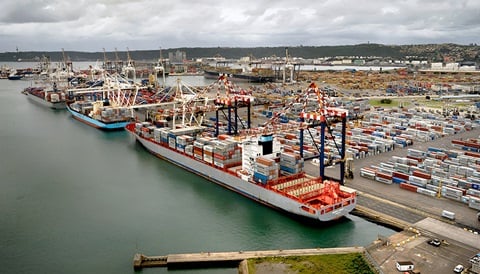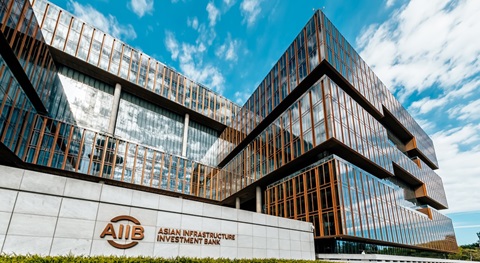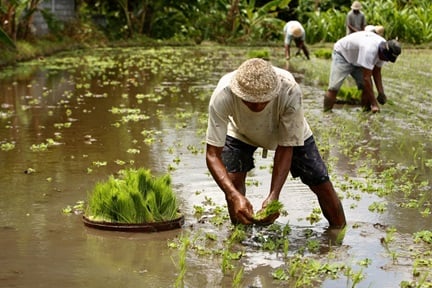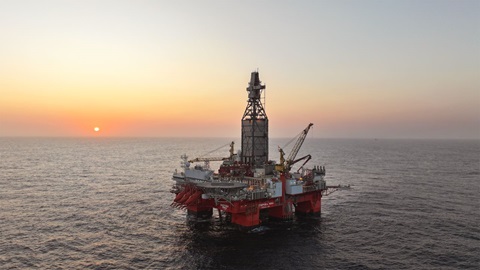Sustainability in Africa
The circular economy is new to Africa but the continent is taking a step in the right direction.
by Johan Burger

BATTLING PLASTIC POLLUTION IN KENYA
Kenya has been actively tackling plastic pollution. In 2017 it banned the production, sale and use of plastic carrier bags. In June 2020, it banned single-use plastics in all “protected” areas. Other initiatives include the Kenya Plastic Action Plan and the Kenya Extended Producer Responsibility Organization (KEPRO) development. KEPRO aims at ensuring that plastics are collected, sorted, and recycled after use, placing the onus on producers for the post-consumer phase of single-use goods.
Various recent developments emphasise the need for more significant momentum for dealing with plastic pollution. These include single-use masks, sanitiser bottles, and other related plastic products due to the Covid-19 pandemic and the concomitant increase in online food orders. In Kenya, 73% of all plastic waste generated is uncollected. Only 8% of the 27% collected is recycled, while the rest is disposed of in landfill sites.
According to the Ellen MacArthur Foundation’s New Plastics Economy, countries with a meaningful plastics pact have achieved success in eliminating unnecessary plastic components and items. They have also moved towards the adoption of alternative materials.
Sustainable Inclusive Business is a centre in Kenya championing the transformation from a linear to a circular economy. They are a collective intervention player towards achieving Vision 2030 and the UN’s SDG’s.
A plastic pact in Kenya will commit stakeholders in the plastics value chain to ensure plastic does not become waste and instead create new job opportunities in new businesses such as EcoPost.
EcoPost in Kenya is a social enterprise that collects plastic waste and turns it into commercially viable, highly durable environmentally friendly fencing posts. This project has created over 300 jobs and contributed towards saving the environment from over one thousand tons of plastic waste.[1]
POINT OF INTEREST
- Kenya can take a leaf out of Singapore where the government has enunciated a new circular economy model. It is built on three “resiliences” – climate, economic and resource. First, climate resilience refers to mitigating climate change. Second, economic resilience ensures companies can thrive in the future economy in the face of climate change and growing resource constraints. Third, resource resilience, which secures critical resources such as food, water, and materials through optimisation and recovery of treasure from trash. Stimulating the development of new companies that focus on eradicating plastic pollution will create new jobs in addition to helping create a cleaner environment. Sustainability is no longer a catch-phrase but it is essential to deal with environmental pollution. New ventures with a social impact create jobs and stimulate the economy all at the same time. Start-ups across Africa are producing plastic bricks, tiles, clothing, refuse bags, and using plastic as input material in tar roads.
BIOFUELS FOR REFUGEES IN KENYA
Vuma Biofuels, a biomass fuel startup in Kenya, is in talks with the UN Refugee Agency (UNHCR) to use sugar-cane biomass energy for refugees in Kenya. The eastern African nation currently hosts more than 500,000 refugees mostly from Somalia and South Sudan. Housed in refugee camps like Dadaab and Kakuma , the refugees rely on smuggled wood and charcoal for heating.
Vuma uses sugar cane husks to make biomass briquettes as the husks can generate similar levels of heating with less material compared to firewood, while generating very little smoke. The Kenyan sugar industry generates 2.4m tons of bagasse (husks and other fibrous material) from sugar cane. According to Vuma co-founder Ian Otula even if Kenya were to stop sugar production the current husk stock would last up to 25 years. The firm has signed agreements with two sugar-cane factories to procure their husks. Its production facility is close to the Sony sugar company (no connection with the Japanese electronic giant), the country’s third-largest sugar mill. Vuma intends to launch a new fundraising round of at least US$5m. The plans, however, could not have come at a worse time. The Kenyan government has threatened to shut down Dadaab and Kakuma refugee camps.
POINTS OF INTEREST
- According to the Clean Cooking Alliance (CCA), 8.1m households in Kenya use wood and 1.3m use charcoal to prepare food. These sources are deemed to be dirty and dangerous as fuel smoke contributes to over 20,000 deaths in Kenya annually. According to the UN, Kenya lost an estimated 9% of its forests between 2000 and 2018.
- This is not the first example of entrepreneurial actions towards generating biofuel in Kenya. We have seen examples of entrepreneurs producing briquettes and cattle fodder from hyacinth plants that were previously clogging up dams . The business model provides a healthier alternative to wood-generated energy for cooking purposes and reduces the negative impact of deforestation. No real scale is required as mini plants could focus on smaller villages if raw materials are close by, such as sugar cane husks (or hyacinth plants in other case studies).This is the kind of activity SMEs and entrepreneurs, local and foreign, can invest in, doing good while being profitable as well. In addition to contributing to social and medical well-being it also creates much-needed jobs.
KEEPING NIGERIA’S WATERWAYS CLEAN
In Nigeria, plastic litter in the waterways has become a threat to the country’s marine ecosystem. 80% of marine pollution originates on land. The Nigerian Maritime Administration and Safety Agency (NIMASA) recently launched the Marine Litters and Micro Plastic Action Plan (MLMPAP). The goal of NIMASA is to keep Nigeria’s waterways safe and secure, clean, and free of waste that could impede maritime activities. It is committed to reducing, if not total eliminating, the dumping and improper management of waste. The MLMPAP aims to eliminate all land-based sources of marine litter within five years. The agency will collaborate with a National Task Force (NTF) to implement the action plan at the local, national and regional levels. Public education and awareness programs will also be part of the campaign to achieve sustainable waste management.
Government entities are currently collaborating to enact a law that would prohibit the production of plastics that pollute the environment. Hopefully, the law will compel manufacturers to recycle plastics.
If the MLMPAP succeeds it will contribute towards making the Nigerian maritime environment safe, clean and favourable for a thriving “blue ocean economy.”[2]
Packaging solutions provider Dow recently partnered with Norwegian digital platform Empower to conduct a feasibility study for a plastic waste recycling project in Nigeria. According to the authorities, Nigeria generates 2.5 million tons of plastic waste annually, 70% of which ends up in landfills, sewers, beaches, and water bodies. Dow plans to collect and recycle 300 million plastic bags in Nigeria. Empower specialises in collecting, tracking, and recycling plastics and will collaborate with Dow to implement a scalable digital business model for waste collection and recycling. It uses blockchain technology to track and monetise plastic waste.[3]
POINTS OF INTEREST
- The world’s waterways are choked with plastic from land-based sources. Africa is no exception. Plastic pollution threatens the fish and marine industry. Nigeria’s actions to deal with this situation are laudable but it will need strong public-private partnerships to deal with the problem.
- With adequate support, the private sector can come up with sustainable business solutions to address plastic pollution. It can stimulate the development of a circular economy. The collaboration between Dow and Empower shows how private sector partnerships can create new business as well as contribute to dealing with plastic pollution. Many such opportunities exist, not only in Nigeria but across Africa.
FOCUS ON WASTE-TO-ENERGY IN MALI
In 2019, Mali produced 1,600 tons of waste per day. Its capital Bamako produces approximately 17,000 tons of plastic waste annually. Current waste management practices include unsupervised open-air incineration or dumping – both environmentally damaging and hazardous to health. This can contaminate groundwater, result in methane emissions and compromise the health of communities living near the dumpsites. To deal with this situation, Energy Solution Systèmes (ESS) recently received approval from the Bamako City Council to implement a solid waste-to-energy (WTE) power project. The plant will initially generate 40 MW of electricity which will be connected to the state-owned Energie du Mali (EDM) power grid. The project will be showcase a waste management solution for Mali.[4]
POINT OF INTEREST
- WTE plants in Africa have a small footprint. Very few countries have considered this opportunity. Ethiopia and South Africa have commissioned WTE projects in the past, Mali is the latest to join the experiment. WTE plants are typically built on a PPP model. With Africa’s growing waste generation problem and lack of electricity WTE plants should be a go-to solution. Yet, there a not very many such projects in the pipeline. Singapore, a small city-state of 720 square kms and a population of slightly less than six million people, allocated a contract in 2015 to Hyflux, a local water treatment firm, and Japanese giant Mitsubishi to build the country’s sixth WTE plant. In 2020, Keppel announced it was building the world’s largest WTE plant with a capacity of turning 29000 tons of waste into electricity daily. Africa is a large continent and yet it does not have as many WTE plants as Singapore does. The opportunity for the development of such WTE plants is therefore enormous. Kenya, Nigeria and Mali have shown the desire in African countries to deal with their waste problem. The private sector in Singapore, with its experience at home, can support the African continent in its aspiration to develop a circular economy.
MANAGING E-WASTE IN RWANDA
Broken PCs, laptops, phones, and second-hand gadgets pile up as trash on open air dump sites in Kigali. But entrepreneurs like Eric Nshimiyimanain have found a way to refurbish them and put them back on the market for sale. For emerging countries business models that recycle waste are a key step towards sustainability.
Rwanda is one of 13 African countries that have passed national legislation regulating e-waste, resulting in the establishment of its first official recycling facility. EnviroServe Rwanda is a public-private partnership (PPP) between the Government of Rwanda and Dubai-based waster processing firm Enviroserve. It was set up in 2020 and has a processing capacity of 10,000 metric tons of e-waste annually. The facility has reportedly repaired and refurbished more than 5,000 computers, which were sold to public schools. It has also processed more than 4,000 tons of e-waste, creating more than 600 jobs. E-waste contains hazardous materials that can contaminate the environment. The facility is said to have reduced more than 2000 tons of carbon through its activities. As much as US$66m worth of resources could be recovered from Rwanda's e-waste. 7% of the world's gold is reportedly hidden in e-waste. According to the UN there could be up to 100 times more gold embedded in a metric ton of e-waste than in an ore.
Global E-Waste Monitor estimates 75m metric tons of electronic equipment is discarded each year. In 2019 less than 10m tons of such waste was recycled. Some of that was exported to Africa.
The e-waste sector creates many informal but hazardous jobs. In Agbogbloshie, a district of Accra in Ghana, for instance, more than 5,000 informal scrap metal workers are employed to burn e-waste and extract precious and critical metals from it.
Enviroserve’s success in Rwanda could become a driver for the growth of e-waste recycling in East Africa, creating jobs and formal training for many.[5]
POINTS OF INTEREST
- E-waste has become a significant problem in Africa. West African countries particularly are being seen as e-waste ‘dumping grounds.’ However, there are opportunities to deal with the e-waste due to the valuable resources found within the waste. Entrepreneurs in some countries such as Togo, Tanzania, and Cameroon refurbish television sets and other electronic goods from extracted e-waste materials. Enviroserve provides a business model that is worth imitating.
- While the indiscriminate dumping of e-waste on landfill sites is an environmental hazard, recycling it could be a business opportunity for social impact investors. Africa has the willingness and skill to play an important part in the circular economy. It will need to adopt strategies to deal with its e-waste as the scale of the problem will increase as its population becomes more affluent.
DEALING WITH EGYPT’S WATER CHALLENGES
The Sovereign Wealth Fund of Egypt (TSFE) wants to invest more in sustainable projects. This includes desalination plants and treated wastewater re-use projects. The Egyptian government favours public private partnerships (PPPs). It plans to equip 19 coastal cities with reverse osmosis plants by 2022, 47 by 2030, and 67 by 2050. It will also start using treated wastewater for agriculture and put more attention to the preservation of ecosystems.[6]
POINTS OF INTEREST
- Egypt has been developing strategies to deal with its water challenges for several years. It is opposed to the building of the Grand Ethiopian Renaissance Dam (GERD), which it says will severely and negatively impact its society, industry, and agriculture. Desalination and water re-use strategies will stand it in good stead, irrespective of the outcome of its negotiations with Ethiopia. Egypt’s pro-business policies offer investors with plentiful opportunities in the third largest economy in Africa - one that has made steady improvement as an attractive investment destination under President Abdel Fatah Al-Sisi.
- More than 20 countries in Africa are designated as water challenged. Last year, World Vision indicated that of the top ten countries in the world with the worst access to clean water, nine are in Africa.
- Singapore is well-known for its strategies and research on water. The country has no sustainable rivers but has dealt with the situation very successfully. Its desalination NEWater facility is world-class, as are its water re-use strategies. These are factors that can be exported to not only Egypt, but the rest of Africa.
NEW WASTE-TO-ENERGY PLANTS COME UP IN SOUTH AFRICA
Kibo Energy recently appointed Lesedi Nuclear Services to produce more than 50 MW of electricity using plastic waste in South Africa. Under the terms of the engineering, procurement, and construction (EPC) contract, the waste-to-energy (WTE) plastics plant will use pyrolysis technology in South Africa. The process involves heating plastic waste to over 400°C to produce a synthesis gas, which is then used to power gas engines to generate electricity.
Kibo Energy will lead the project in partnership with Industrial Green Solutions (IGES). A contract has been signed with a plastic waste management operator to provide the plastic waste for the project. The electricity generated will be sold to industries in South Africa to reduce their dependence on the struggling state-owned utility Eskom. Coal currently generates 90% of South Africa’s electricity. It is expected WTE projects could reduce the dependence on coal by 50% by 2050.[7]
POINTS OF INTEREST
- Plastic is a significant contributor to Africa’s waste problem. There are few suitable landfill sites. Ethiopia and South Africa are among the few that have WTE facilities. Developing WTE plants is a laudable and clever strategy. In addition to reducing the dependence on coal WTE plants create valuable job opportunities. The unemployment rate in South Africa is 42%. Given that 60% of Africa’s population still has no access to electricity it is puzzling why there are not many more WTE plants spread across the continent.
- Singapore is an excellent example of a small city-state making extensive use of WTE plants to generate electricity and at the same time dealing with the problem of waste.
LIBERIAN FIRM PUTS PLASTIC WASTE INTO CONSTRUCTION
In Liberia, a social enterprise that goes by the name of Ever Green Recycling Institute (EGRI) recycles plastic waste into products such as paraffin, bricks, floor tiles, and roof tiles. The company recently applied for government funding worth US$200,000 to purchase four new reactors to boost its operations. It currently has only one reactor which can process 200 kgs of plastic waste. The move comes after the World Bank provided Liberia US$9.3m to to deal with its plastic waste problem. [8] EGRI is one of many emerging social enterprises in in Africa that see waste management into a sustainable business opportunity.
SENEGAL GETS HELP TO CONVERT DUNG INTO BIOGAS
The Swiss government is supporting the Senegalese government to develop 60,000 biodigesters that will convert cattle dung and faecal sludge to produce biogas for rural homes.
The biogas will be used for household cooking and its use will reduce deforestation as well as reduce respiratory and eye diseases associated with firewood use. Biogas also generates organic fertiliser in the form of slurry, which is used for fodder and food production.[9] Additional income can also be generated through market gardening, cattle fattening, and milk pasteurisation.[10]
THE WORLD’S FIRST 3D-PRINTED SCHOOLS COMES UP IN MALAWI
Construction in Africa may become faster and more affordable. In Malawi, an affordable housing venture called 14Trees used 3D-printer technology to produce the world's first 3D-printed school. 14Trees, a joint venture between CDC Group and LafargeHolcim seeks to help address housing shortages in Africa. According to the project managers it took only 12 hours to ‘print’ the walls. UNICEF estimates that the shortfall of 36,000 classrooms in Malawi could take 70 years to build. 14Trees claims this gap could be eradicated within 10 years through use of 3D printers. The company intends to use this concept to expand into Kenya, Madagascar, and Zimbabwe.[11]
Africa is no stranger to 3D printers, although this is the first instance of a project involving a 3D-printed school. Togo and Tanzania have seen the local development of 3D printers using e-waste. The 3-D classroom project shows how foreign investors can join hands to address social challenge in Africa.
Additional Readings
Jamoh, B. 2021. Understanding NIMSA’s marine litters and micro plastic action plan. Guardian. 14 April 2021. Available at https://guardian.ng/business-services/understanding-nimasas-marine-litters-and-micro-plastic-action-plan/. Accessed 13 May 2021.
Magoum, I. 2021. Mali: Energy Solution to incinerate waste to produce electricity in Bamako. Afrik 21. 7 May 2021. Available at https://www.afrik21.africa/en/mali-energy-solution-to-incinerate-waste-to-produce-electricity-in-bamako/. Accessed 13 May 2021.
Magoum, I. 2021. Nigeria: Norad funds plastics circularity feasibility study. Afrik 21. 3 May 2021. Available at https://www.afrik21.africa/en/nigeria-norad-funds-plastics-circularity-feasibility-study/. Accessed 13 May 2021.
Wawira, J. 2021. A new plastics waste deal can help Kenya contain pollution. Business Daily Africa. 7 April 2021. Available at https://www.businessdailyafrica.com/bd/opinion-analysis/ideas-debate/a-new-plastics-kenya-contain-pollution-3351734?utm_source=traqli&utm_medium=email&utm_campaign=bdafrica_newsletter&tqid=k6Svdnl_DF4BxaSPTiSPe4Eip6JP1Ly2JYPTkOJGgQ. Accessed 13 May 2021.
Magoum, I. 2021. South Africa: Lesedi to convert plastics into electricity via pyrolysis. Afrik 21. 19 May 2021. Available at https://www.afrik21.africa/en/south-africa-lesedi-to-convert-plastics-into-electricity-via-pyrolysis/. Accessed 25 June 2021.
Magoum, I. 2021.Egypt: PPPs for desalination and wastewater treatment plants. Afrik 21. 28 April 2021. Available at https://www.afrik21.africa/en/egypt-ppps-for-desalination-and-wastewater-treatment-plants/. Accessed 25 June 2021.
Renjifo, D. 2021. The rising e-waste crisis is being reckoned with in Rwanda, one gadget at a time. CNN Marketplace Africa. 26 February 2021. Available at https://edition.cnn.com/2021/02/26/africa/marketplace-africa-ewaste-electronics-recycle-rwanda-spc-intl/index.html?utm_source=Africa.com&utm_campaign=3683ad7c14-EMAIL_CAMPAIGN_2018_06_22_02_06_COPY_01&utm_medium=email&utm_term=0_12683c81a6-3683ad7c14-29147709. Accessed 25 June 2021.
Whitehouse, D. 2021. Kenya’s Vuma Biofuels banks on sugarcane biomass to supply energy for refugees. The Africa Report. 25 February 2021. Available at https://www.theafricareport.com/68255/kenyas-vuma-biofuels-banks-on-sugar-cane-biomass-to-supply-energy-for-refugees/. Accessed 25 June 2021.
Lavars, N. 2021. World’s first 3D-printed school tackles classroom shortages in Africa. New Atlas. 5 July 2021. Available at https://newatlas.com/architecture/worlds-first-3d-printed-school-africa/. Accessed 24 July 2021.
Magoum, I. 2021. Senegal:60,000 biodigesters to produce biogas from faecal sludge. Afrik 21. 15 July 2021. Available at https://www.afrik21.africa/en/senegal-60000-biodigesters-to-produce-biogas-from-faecal-sludge/. Accessed 24 July 2021.
Magoum, I. 2021.Liberia: EGRI to get new plastic recycling equipment. Afrik 21. 29 April 2021. Available at https://www.afrik21.africa/en/liberia-egri-to-get-new-plastic-recycling-equipment/. Accessed 24 July 2021.
Mureithi, F. 2021. Dairy farmers adopt biogas to cut costs. Daily Nation. 15 June 2021. Available at https://nation.africa/kenya/business/technology/dairy-farmers-adopt-biogas-to-cut-costs-3437280. Accessed 24 July 2021.
References
[8] https://www.afrik21.africa/en/liberia-egri-to-get-new-plastic-recycling-equipment/
[9] https://nation.africa/kenya/business/technology/dairy-farmers-adopt-biogas-to-cut-costs-3437280
[10] https://www.afrik21.africa/en/senegal-60000-biodigesters-to-produce-biogas-from-faecal-sludge/
[11] https://newatlas.com/architecture/worlds-first-3d-printed-school-africa/







